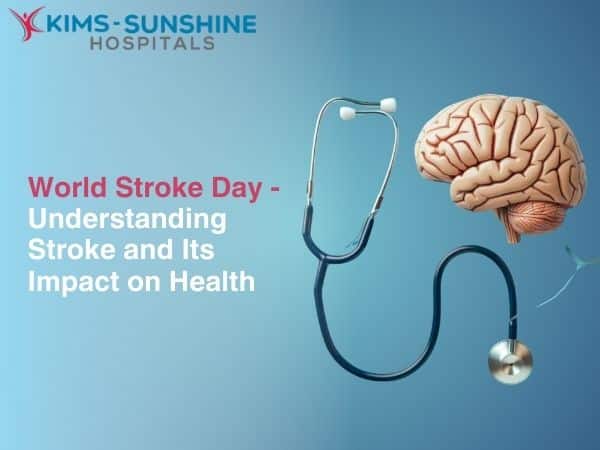
World Stroke Day – Understanding Stroke and Its Impact on Health

A stroke can be a sudden medical occurrence where blood supply to the brain gets disrupted for a few minutes. Our brain consumes more than 20% of the oxygen we breathe in and if it does not get oxygen, its cells can begin to die within a few minutes. This cell death is what causes symptoms and issues that persist for years or even for life, after the attack has passed. There are two ways in which blood flow can decrease- a blood clot or if a blood vessel in the brain bursts. Surviving a stroke and getting back to normalcy is a huge deal. This is why celebrating World Stroke Day matters.
Why Is World Stroke Day Celebrated?
The World Stroke Organization first decided to celebrate World Stroke Day at the World Stroke Congress held in Canada in 2004. Since then, this has become an annual thematic event with different themes but the focus has always been on knowing what the signs of a stroke are and getting help immediately. People should know about the FAST approach- Droopy Face where the person is not able to smile, Weakness in the Arm and Slurred Speech- meaning Time to call emergency services ASAP! Some other symptoms are vision problems, experiencing confusion, not being able to walk properly or having a severe headache. Oct 29 is also celebrated as National Stroke Day in India every year.
The Theme For This Year
Rehabilitation after a stroke can be highly demanding and that is why the theme for this year is ‘Greater Than A Stroke’. This allows survivors to tell others their stories about how they have coped after a stroke, the caregivers to help us with good support and advice and doctors learn better. There is a high chance that someone who has had a stroke before will get another in the next couple years.
Conclusion
Strokes can happen at any time but they are mostly preventable. This means you can make sensible changes to your lifestyle and diet, not consume too many processed foods, watch your diet, stay physically active, keep a watch on blood pressure and hypertension. Getting treatment within the first hour of having a stroke is crucial for better recovery chances. That is why this hour is also called the ‘golden hour’. Do you think you can recognise these symptoms in someone and get them help soon? Let’s hope you do!






